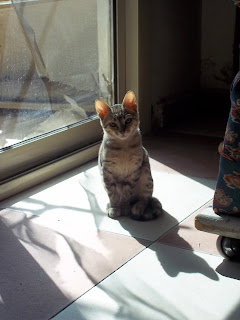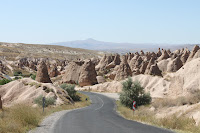Blood streams from my arm like the River Nile, and saline tears roll down my cheeks like Alexandrian winter rain. No, I have not been shot with a rubber bullet by the Egyptian Central Security Forces and their military cronies. No, I have not been inhaling tear gas made in the USA and exported to Egypt. That’s a few kilometers up the road, in the beating heart of the revived Egyptian Revolution, Midan Tahrir. There, young revolutionaries are losing their eyes, or worse, their lives. There, volunteer doctors are treating cases of asphyxiation in a makeshift field hospital in the square’s mosque. There, Egyptians are pouring in by the second, the mood one of both hope and foreboding, dedication and exhaustion.
No, I am not there, although my heart and spirit no doubt are. I am lying in a hospital bed, the tube linked to my arm’s vein slurping up my donated blood, doing the least I can for these brave Egyptians. I am not crying because it hurts. My tears are for Shehab. Shehab and I met earlier in the safety of the Midan’s rebellious spirit on one Friday afternoon earlier this fall, thousands of protesters surrounding us with chants and demands. Later that evening, chaos would again descend as protesters furiously attacked the Israeli Embassy. Naturally, we talked politics. Palestine, Egypt’s Supreme Military Council, America’s nuclear weapons, you name it. It was one of those tireless exchanges where energy incessantly flows back and forth between two people. I was so struck by his cleverness, his passion, his commitment to Egypt - he is the Egyptian youth that rose up in January, and he is the youth who will rebuild it. Or he was. Now Shehab’s vivacious spirit will have to guide his comrades. Shehab was killed yesterday in his beloved Midan Tahrir, at the hands of Egyptian security forces. A photo and video circulating the web shows military police dragging bodies over to a pile of trash: I recognized the shirt he wore the day we met.
 |
| With Shehab (left) in Midan Tahrir |
When my friend Mohamad told me the news this evening amidst sobs, I clumsily told him in emotionally faltering Arabic that this is how Shehab would have wanted to go. “But why? Why are they killing us?” He asked me, pained. I responded that I didn’t understand, I didn’t know. But what I do know is that al-soura mustamerra, the revolution goes on. There is a type of energy at the moment that my friends tell me is reminiscent of the uprising earlier this year. The urgency is certainly there, as the list of crimes of the Supreme Council of the Armed Forces (SCAF) only grows. Military trials for civilians have continued to the tune of 12,000 since the fall of Hosni Mubarak. Investigations into egregious massacres like the bombing of an Alexandrian church or the recent murder of 24 mostly Copts are not taken seriously, most likely because they have state fingerprints all over them. A timetable for the transition to civilian rule has not been firmly set and any promises have been dishonored. The parliamentary elections (scheduled to start this Monday) have been despicably organized and there is fear of military deals with the Muslim Brotherhood. The military is trying to impose constitutional amendments that would guarantee their economic foothold and protection from the law.
If there is a time to stand up again and fight, it is now. I cannot say whether or not this will transform into the wave of might and power that rippled across Egypt this past January, nor whether the SCAF will make the concessions demanded of it. As I speak, the civilian cabinet is trying to hand in its resignation to SCAF, but is so far being refused. Clashes continue unabated into their fourth day in not only Tahrir, but also Alexandria, Qena, Aswan, Suez, and other cities. Calls for a million-man march tomorrow afternoon are spreading around the country. People are organizing on a massive scale, planning police resistance tactics, march and escape routes, drop-off points for medical and sit-in supplies. It is extraordinary to see, and while I want no more young martyrs to suffer Shehab’s fate, I want more than anything for Egypt to achieve her revolutionary dreams.
One of the blood drive doctors stopped at the foot of my hospital bed. “Leih keda?” He whispered softly, tilting his head in concern at my glistening cheeks. Why the tears? I told him of Shehab. “Rabena Yastur,” he muttered, head bowed. May God protect us.
----
On a personal note, my classes have been moved to a different location, since the most intense clashes are literally taking place outside my campus. Life in the rest of Cairo goes on relatively normally, although people are always tuned into the square and the politics. My program and the American University in Cairo are taking the right precautions, as are my friends and I. Here is a list of links to articles, news sources, and photos with more details on what is currently taking place in Egypt.
Arabist's Notes from Tahrir, great blogger
Cairo Jumps the Rails, Marc Lynch
Tear Gas (a particularly nasty, perhaps new brand is now being used)
Egyptian Chronicles Blogger (very detailed, somewhat graphic)













